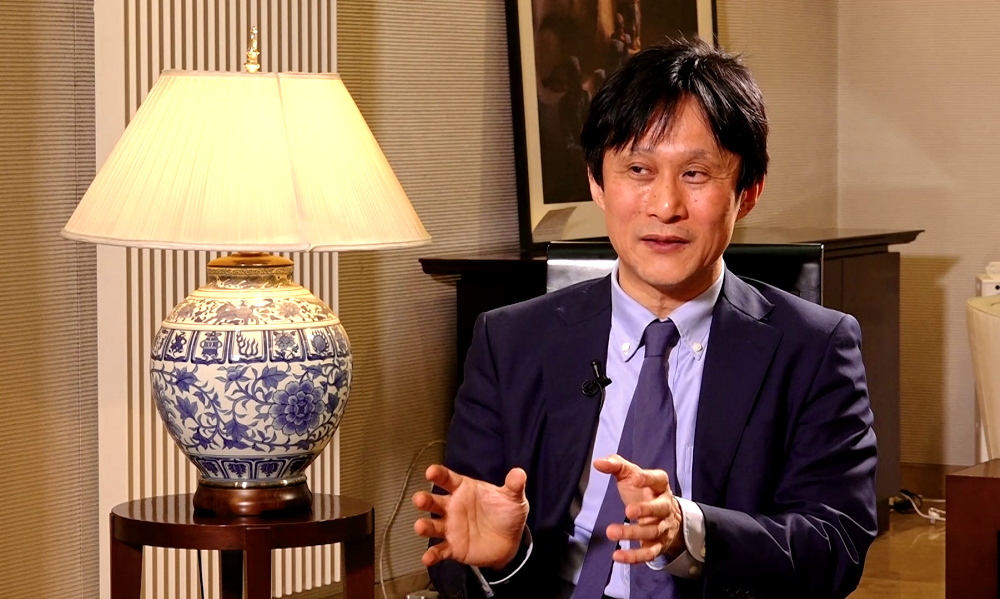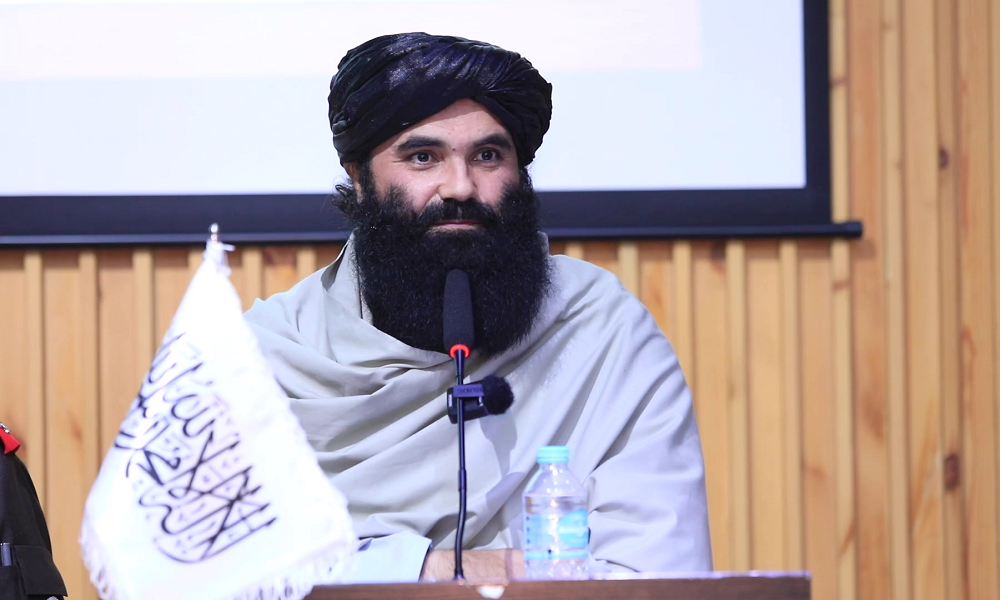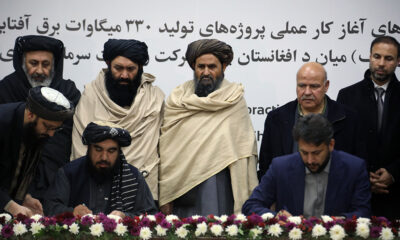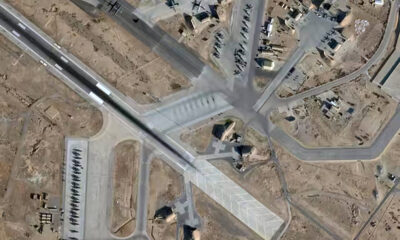Latest News
Government seeks to impose restrictions on Media

A number of Afghan media officials declared that the government is trying to impose to put pressure and impose restrictions on media.
They stated that several officials of media outlets summoned by the ministry of information and culture is contrary to the constitutions and considers the beginning of restrictions on media.
Simultaneously with the beginning of May 3, World Press Freedom Day, the ministry of information and culture summoned officials of four newspapers due to alleged of violation of media.
Nazari Paryani, director of Mandegar newspaper said, “The threatening written to four newspapers in the World Press Freedom Day indicates that the government is trying to implement the rule of violence on media outlets.”
“The ministry of information and culture’s action that summoned officials of four newspapers is alarming and putting pressures on media outlets may cause the return of past.” Muhammad Jawad Sultani, director of Jame Baz newspaper said.
Meanwhile, Afghan media watchdog; Nai-supporting open media in Afghanistan warned that any pressure and censorship by the ministry of information and culture would harm the freedom of speech in Afghanistan.
The watchdog also considered the activities of complaint commission of media contrary to the constitutions.
“While the minister of information and culture must prepared a large program for the World Press Freedom Day, but unfortunately, he summoned officials of several media due to accusation of media violations which is a threat against media by the government itself,” Sidiqullah Tawhidi, head of Supporting Open media in Afghanistan said.
In the meantime, the executive officer, Abdullah Abdullah called for the clarification of media officials summoned by the ministry of information and culture.
Press freedom is one of the important achievements of the past ten years of current government of Afghanistan, which has been obtained with the involvement and support of the international community.
Now that the gradual withdrawal of the international troops are speeding up and the talks with the Taliban, who from the roots of their believe are against the freedom of speech and media activities, is getting serious, it puts the press freedom in an awkward position and uncertain future.
The number of mass media is growing remarkably every year. Most of these media are dependent on the international donor funding in one way or another.
Ten years after the involvement and presence of international community in Afghanistan, the deadly incidents and violations against reporters and media personnel are about the same as it was in the first years of post Taliban. Media activists in Afghanistan still face serious challenges.
Although media outlets have proliferated in the private sector in Afghanistan, the Afghan press is hobbled by insufficient security, lack of access for their investigations, serious revenue and funding shortfalls, stalled legislation for freedom of the press, change-wary socio-cultural norms that tend to undercut the wide dissemination of news and skirt in the presentation of scientific/technological and foreign information.
Media have managed to produce serious talk shows about the topics of great importance the country is currently facing. The non-government media monitor and observe the situation via their round table discussion programs.
These programs usually criticize the government activities, the policies of involved countries into Afghanistan affairs as well as the policies of the international community.
Discussing the mentioned topics, unveiling the wrongdoings of government and international community, disclosing the involvement of high ranking government officials in corruption and exposing the irregularity and hidden secrets of the society are among the main positive achievements of media in the past ten years in the country.
Reported by Rafi Sidiqi

Latest News
Japan maintains direct contacts with IEA officials through Kabul Embassy

Japan continues direct communications with Islamic Emirate officials through its Kabul embassy, despite the lack of formal diplomatic relations, Kenichi Masamoto, Japanese Ambassador to Kabul, told Ariana News in an exclusive interview.
Masamoto noted that no final decision has yet been made regarding the future of Afghanistan’s embassy in Tokyo.
“At present, there are no official diplomatic relations, and certain restrictions exist,” he said. “However, we are working to find appropriate channels for dialogue and engagement. The Afghan Embassy in Tokyo had been managed by diplomats of the former government appointed under the previous Republic. Following discussions with Japanese authorities, it was agreed that the embassy would close at the end of January, and this has now been completed. No final decisions have been made regarding future arrangements.”
The ambassador emphasized that progress in the Doha process could help end Afghanistan’s isolation and open the door to broader international engagement with the Islamic Emirate. “As a member of the international community, this process will also create more opportunities for Japan to engage with Afghanistan,” he said.
Masamoto stressed the international community’s concern over the ongoing suspension of secondary and higher education for girls, noting that Japan shares this concern. “Girls’ education is critical for Afghanistan’s future. This is not only the position of the international community—it is also in the best interest of Afghanistan’s future. The international community wants this suspension to end as soon as possible,” he said.
Despite these challenges, Japan will continue to support the Afghan people, focusing on humanitarian aid and the provision of basic needs through the United Nations. The ambassador highlighted that Tokyo has stood by the Afghan people during difficult times and will continue to do so.
The Afghan Embassy in Japan officially closed at the end of January 2026.
Latest News
Afghanistan’s security is security of region and world: Haqqani

Khalifa Sirajuddin Haqqani, Minister of Interior Affairs, says the officials of the Islamic Emirate have repeatedly emphasized that the security of Afghanistan is the security of the region and the world.
Speaking at the graduation ceremony of the sixth professional police course, Haqqani stated that insecurity in the region is insecurity for the entire world.
He added: “Neighbors, the region, and the world must adopt strategies and policies that contribute to the stability of Afghanistan.”
Addressing the police officers, Haqqani said: “The foundation of this system was built on piety and sacrifice. Instead of promoting oneself, all attention should be given to the values of the system.”
He advised them: “We should raise our ethical capacity to such a level that our ethics influence the areas related to our duties.”
He further stated that officers equipped with Islamic belief and professional training are capable of providing valuable services to the people.
The Minister of Interior Affairs emphasized the role of the police in maintaining security, preventing crime, and strengthening the system, adding that the professionalization of the police is of fundamental importance for the country’s stability.
Sirajuddin Haqqani described the qualities of an Islamic police officer as piety, professionalism, and dedication, stressing that ensuring security is only possible through professional and disciplined police.
He also noted that education and ethical standards must be prioritized, because the improper behavior of individuals can damage the public’s trust in the system.
He urged the police to, with piety, good conduct toward the people, and law enforcement, uphold the principles of public service in their work, so that the trust and cooperation of the people are further strengthened.
Latest News
UN warns mass return of Afghans from Pakistan and Iran is pushing Afghanistan to the brink

The mass return of Afghans from neighboring Pakistan and Iran is pushing Afghanistan to the brink, the U.N. refugee agency warned on Friday, citing an unprecedented scale of population movement.
According to UNHCR’s representative in Afghanistan, Arafat Jamal, 5.4 million Afghans have returned since October 2023, the vast majority from Pakistan and Iran. Speaking to reporters in Geneva via video link from Kabul, he said the pace of returns is overwhelming.
“This is massive, and the speed and scale of these returns has pushed Afghanistan nearly to the brink,” Jamal said.
The surge began after Pakistan introduced a sweeping crackdown in October 2023 targeting undocumented migrants, prompting many Afghans to leave voluntarily or face detention and deportation. Iran also tightened measures against migrants at roughly the same time.
Many of those returning had spent decades in exile — some born and raised in Pakistan with established businesses and family networks.
Last year alone, 2.9 million Afghans returned, marking the highest annual return to any single country ever recorded by UNHCR.
Jamal noted that Afghanistan was already grappling with a severe humanitarian crisis, economic fragility, and restrictions affecting women and girls. The sudden arrival of returnees — equal to about 12% of the population — has further strained services and resources. About 150,000 people have returned since the start of 2026.
Afghan authorities distribute basic assistance packages — including food, cash, SIM cards, and transport — but needs far exceed available support, particularly in a country still reeling from drought and two major earthquakes.
A November assessment by the UN Development Programme (UNDP) found that nine in ten families in high-return areas were resorting to negative coping mechanisms such as skipping meals, taking on debt, or selling their belongings.
Jamal also voiced concern about long-term sustainability, noting that while 5% of returnees say they plan to leave Afghanistan again, more than 10% know someone who already has.
“These decisions, I would underscore, to undertake dangerous journeys, are not driven by a lack of a desire to remain in the country, on the contrary, but the reality that many are unable to rebuild their viable and dignified lives,” he said.
-

 International Sports5 days ago
International Sports5 days agoIPL 2026: Franchise sales gather pace as global investors circle teams
-

 Sport3 days ago
Sport3 days agoAfghanistan’s semi-final hopes hang in the balance after two T20 World Cup defeats
-

 Business5 days ago
Business5 days agoUzbekistan approves feasibility study agreement for Trans-Afghan Railway
-

 Business4 days ago
Business4 days agoAfghanistan signs 845MW Power deal with Azizi energy; Baradar meets company Chief to advance investment plans
-

 International Sports4 days ago
International Sports4 days agoAFC Champions League Elite delivers key results as race for knockout stage intensifies
-

 International Sports5 days ago
International Sports5 days agoWinter Olympics: Milan action continues with packed schedule on Tuesday
-

 Latest News5 days ago
Latest News5 days agoDoha process private sector meeting highlights growth and coordination in Afghanistan
-

 Regional4 days ago
Regional4 days agoUS used mobile launchers for missiles at Qatar base as Iran tensions rose, satellite pictures show














